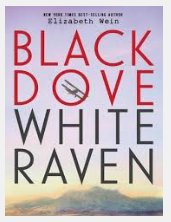If my numbers are right, I've read six books about math this summer. One repeated theme throughout much of my reading is the need for math to become part of our student's worlds instead of an isolated skill set that seems unrelated to daily life. Fosnot repeatedly uses the word "mathematize." With purpose and intentionality, we math teachers can ramp up the authenticity factor for our students and invite them to mathematize their worlds. Many of them will not independently make this leap though. We are the linchpin, which brings me to the thought above by Sammons. I desire this radar awareness that she speaks of.
In order to purposefully teach my kids how to mathematize their worlds, they obviously need to be given the opportunities to tackle math in ways that are personally relevant. I also think Sammons might be encouraging me to teach with eyes wide open, seeking out the teachable mathematical moments throughout the day that I previously might normally have overlooked. I imagine that with a radar awareness, they would abound.
Is there math in that read-aloud? What about a class dilemma? Maybe a problem-solving situation arises out of a typical classroom routine. Obviously there's not time in the day to stop at every math situation that presents itself, but I wonder if a few might be worth tackling in order to help kids see, feel, and hear how math is personal and real lifelong tool.
























